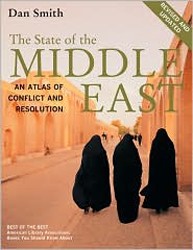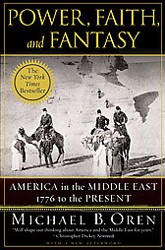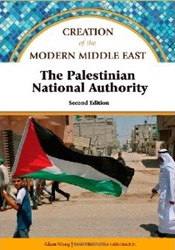Martin Indyk, drawing on his decade-long professional involvement in the Middle East as a senior official in the Clinton administration and as ambassador to Israel, has written a shrewd memoir and insightful history of the failed U.S. efforts to fashion a Middle East peace. In this substantive, self-critical, and well-written book that is filled with detail, analysis, as well as personal anecdotal nuggets, Indyk spares little of the diplomatic pain and frustration he endured. This is a refreshingly honest book.
An Australian academic who came to America in 1982 to spend a sabbatical year at Columbia University and never left — he founded the Washington Institute for Near East Policy in 1984 — Indyk was brought into the Clinton administration in 1992 as a Middle East policy advisor. He was a key player in preparing the U.S. initiatives for the Oslo Peace Accords in 1993 and assumed that the peace process was primed for success. But it took only a year for it all to unravel. The bulk of the book is his attempt to describe what went wrong on the Palestinian track on the West Bank and with the Israelis and Syrians. Along with his colleagues on the American peace team — Dennis Ross, Daniel Kurtzer, and Aaron Miller — who have also recently written books on this subject as well as President Clinton in his memoirs, Indyk lays much of the blame for the failure of the 2000 Camp David negotiations on Yasir Arafat. He believes that Arafat was never serious about coming to a resolution of the conflict.
Indyk draws some lessons for the new administration, advocating for a new comprehensive initiative in the region, a version of the Clinton approach, that recognizes the interconnectedness of the flash points. An Israeli-Palestinian peace, the centerpiece of any resolution, would help bring Arab governments like Egypt and Saudi Arabia on board in an effort to curb Iranian nuclear ambitions. The Iranians currently pose the greatest threat in the region and to U.S. interests because of its nuclear program and its influence over Syria, Iraq, Lebanon, Hezbollah, the Palestinians, and Hamas. He urges the Obama administration to make its goals more modest and realistic than those of the Bush administration. He suggests that Washington push back harder against certain Israeli policies like settlement building. He wants the creation of an international authority to secure Jerusalem’s holy sites with no sovereignty inside that “sacred” zone for either Israel or Palestine. He wants the Palestinians to give up the right of return because it poses a fundamental existential threat to the very concept of a Jewish state. With Hamas, he wants the ceasefire extended and Hamas to reject violence and recognize the legitimacy of Israel by respecting previous accords between the PLO and Israel.
For those interested in the intricacies of Middle East politics and the major players involved, this book is invaluable and well-worth reading. Although the events are over a decade old and have been covered elsewhere, the publication of the book now with a new administration in Washington and Hillary Clinton as Secretary of State makes it especially timely and important.





